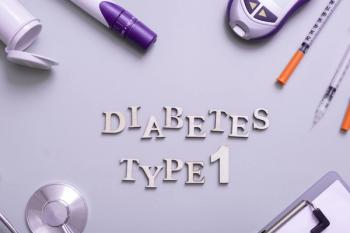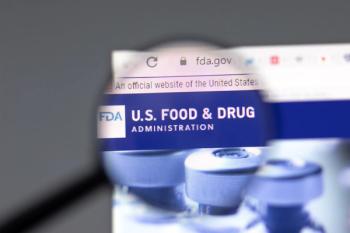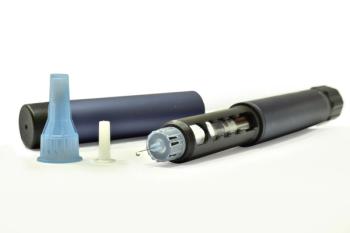
FDA Approves Ponesimod for Treatment of Relapsing MS
Ponesimod was shown to be superior to teriflunomide in the rate of confirmed relapses and the number of new or enlarged T1 and T2 lesions.
The FDA has approved once-daily, oral ponesimod (Ponvory; Janssen) 20 mg for the treatment of relapsing forms of multiple sclerosis (MS).
The indication includes clinically isolated syndrome, relapsing-remitting disease, and active secondary progressive disease. "MS is a complex disease, and any individual's response to MS disease-modifying therapy can vary," said Bruce Bebo, MD, executive vice president of research at the National MS Society. "It's so important that people living with MS have access to effective treatment options. We are pleased that there is a new therapy approved for relapsing MS."
MS is a chronic autoimmune inflammatory disease that attacks myelin in the central nervous system (CNS), leading to damage of nerve cells and inflammation. Though there are a range of symptoms depending on the patient, common symptoms include fatigue, issues balancing and walking, numbness or tingling, dizziness and vertigo, vision problems, bladder and bowel problems, and weakness.
Ponesimod is a selective sphingosine-1-phosphate receptor 1 (S1P1) modulator and its mode of action for MS treatment is unknown; however, investigators argue that ponesimod may work by keeping lymphocytes out of the CNS.
Approval was based on the phase 3, double-blind Oral Ponesimod Versus Teriflunomide in Relapsing Multiple Sclerosis (OPTIMUM) clinical trial, which compared ponesimod with teriflunomide (Aubagio) 14 mg in patients with relapsing MS. The study included 1133 patients and primarily analyzed the annualized relapse rate (ARR) for the study period. Investigators additionally amassed data on the number of new gadolinium-enhancing (GdE) T1 lesions, the number of new or enlarging T2 lesions, and the time to 3-month and 6-month confirmed disability progression.
Ponesimod reduced annual relapses by 30.5% compared with teriflunomide. Seventy-one percent of patients in the ponesimod treatment group had no confirmed relapses, with 61% in the teriflunomide group, investigators reported. Ponesimod also was found to be superior to teriflunomide in reducing the number of new GdE T1 lesions and the number of new or enlargening T2 lesions by 59% and 56%, respectively.
"In the pivotal study, ponesimod demonstrated superior clinical efficacy in reducing annual relapses and MRI activity compared against teriflunomide, another oral MS therapy,” said Robert J. Fox, MD, staff neurologist, Mellen Center for MS Treatment and Research, vice-chair for research, Neurological Institute, Cleveland Clinic. “Those results, combined with a favorable side effect profile, make ponesimod a useful treatment option for people with relapsing MS."
Reference
- Janssen Announces US FDA Approval of PONVORY (ponesimod), an Oral Treatment for Adults with Relapsing Multiple Sclerosis Proven Superior to Aubagio (teriflunomide) in Reducing Annual Relapses and Brain Lesions. News Release. PR Newswire; March 19, 2021. Accessed March 19, 2021. https://www.prnewswire.com/news-releases/janssen-announces-us-fda-approval-of-ponvory-ponesimod-an-oral-treatment-for-adults-with-relapsing-multiple-sclerosis-proven-superior-to-aubagio-teriflunomide-in-reducing-annual-relapses-and-brain-lesions-301250985.html?tc=eml_cleartime
Newsletter
Pharmacy practice is always changing. Stay ahead of the curve with the Drug Topics newsletter and get the latest drug information, industry trends, and patient care tips.























